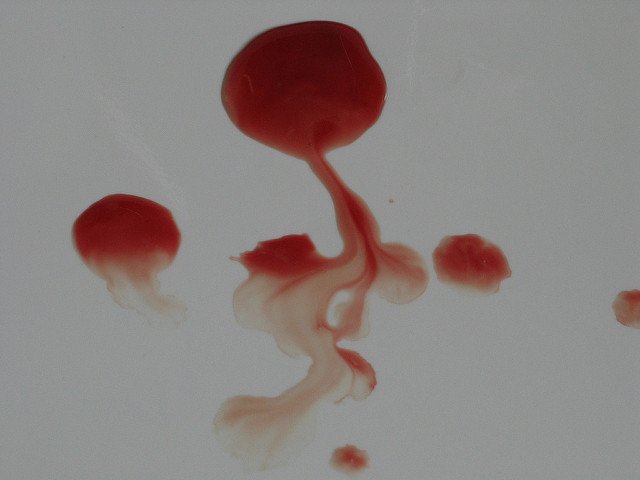


If you are prescribed blood thinners, let your doctor know you are having issues with nosebleeds. Therefore, avoid these if prudently possible. Likewise, the use of vitamin E, aspirin and ginseng can thin the blood and increase the chance of bleeding when blowing nose. The vitamin K should be taken for a period of a month before expecting to see results. This can help quickly resolve extensive and/or recurring nosebleeds. Taking 25 micrograms of vitamin K twice each day can help blood clot more efficiently.In order to avoid this condition, consider the following options: There are some things you can do to prevent or at least minimize the chance of blood when blowing nose. Therefore, consult a doctor if there is any possibility this is the reason for the bleeding when blowing nose. If not addressed immediately, a pulmonary embolism can be fatal. Chest pain and shortness of breath that does not resolve with a period of rest are indications this condition is present. In this case, a blood clot develops somewhere in the body and travels until it becomes stuck in one of the arteries in the area of the lungs. This possibility holds the most danger for the individual, if it is the cause of blood in the mucus. If this occurs at the same time as night sweats or fever, weakness and weight loss, it may be wise to consult a doctor. Even if not infected, a person may have the bacteria that cause tuberculosis, and that can lead to blood in the mucus. TuberculosisĪ bacterial disease that requires aggressive antibiotics for treatment, tuberculosis can show up as blood in the mucus when blowing one’s nose. See also Essential Oils for Kidney Stones 7. An upper respiratory tract infection or a nasopharyngeal infection can also occur when someone is dealing with acute bronchitis, and these conditions can lead to bleeding when blowing nose as well. It can also present with a case of fever. This can be caused by a bacterial infection or a viral infection. While rare, the appearance of blood while blowing nose can indicate a case of acute bronchitis, where the airways that branch out from the trachea are inflamed. If the weather changes quickly, investing in nasal drops and saline sprays can help resolve the damage to your nasal tissue. Therefore, while these are not preventable, you can influence the humidity levels in the house and keep them at a level where your nasal tissues do not dry out and crack. Weatherĭry air and sudden drastic changes of temperature can lead to issues with blood when blowing nose. Identifying the cause can help resolve this particular issue, with no trip to the doctor necessary. This issue can occur during specific seasons of the year, when pollen is more prevalent, or it can be the result of a change in the bedroom environment, i.e. The inflammation associated with this can be called vasomotor rhinitis. Therefore, individuals on these medications are advised to avoid blowing their nose whenever possible.Cold and dry weather increases the issues with capillaries and their tendency to burst.Ĭongestion in the morning typically points toward an allergic reaction to something in the air.

For individuals on blood-thinners like Plavix or Coumadin, this occurs even more regularly and the severity of the nosebleed is increased. Capillaries are needed to keep the internal surface of the nose alive, and therefore are close to the surface.

The capillaries are small blood vessels in the nose that provide oxygen to the organ. Therefore, this issue is not cause for serious concern. This tends to not repeat or cause increasing amounts of blood. This is what leads to blood in the tissue after you blow your nose. When this occurs, blowing the nose can lead to some minor damage to the tissue and result in a tiny amount of blood being excreted. For those who deal with congestion on a regular basis, the tissue lining the passages of the nose can become inflamed.


 0 kommentar(er)
0 kommentar(er)
